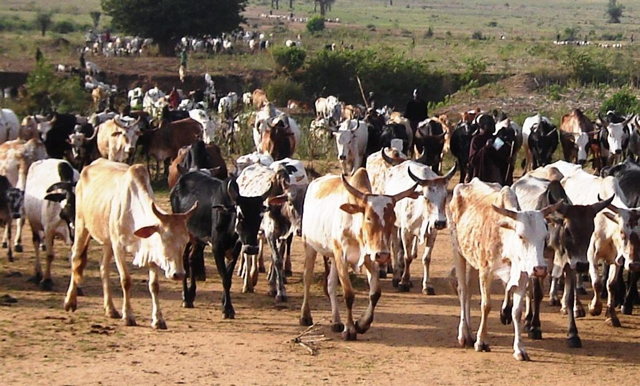
Napak, Uganda | THE INDEPENDENT | The scuffle between the Karamojong and Iteso communities has left several pastoralists stranded with over 10,000 heads of cattle without pasture and water.
The affected community is the Bokora from Napak, who have been grazing their animals in the areas of Teso. But amidst raids by the Karamojong rustlers which forced a score of people in Kabelebyong district to flee their homes, the pastoralists have been forced to evacuate Teso, pushing them back to the dry lands in Napak district.
Joseph Lokote, one of those evacuated from Teso says they had a good relationship with the Teso community until recently when the Jie community from Kotido district crossed to Teso to raid animals. He adds that when the rustlers started crossing, the communities there accused the settlers of abusing their host’s hospitality.
Lokote says that Napak is extremely hot and dry, and Teso was the only hope they had to save their animals. Similarly, Emmanuel Lokwii, another victim blames the Jie rustlers for destabilising their peace with the Teso communities which has caused them hardship and untold suffering, while Napakan Deye, another pastoralist blames the government for failing to address insecurity in the region.
“If Karamoja was peaceful, we would have no problems with our brothers in Teso, we have been at peace, we cultivate together most especially at the borders of Apeitolim and Kaethelem. We have intermarriages, so why would we fight? So, I request the government to solve the problem of insecurity so that we can get back to our normal life with Iteso,’’ Napakan said.
John Paul Kodet, the district chairperson of Napak observed that the pastoralists are struggling to look for pasture and water for their animals following the fracas that occurred between the two communities which have been sharing resources.
Currently, Arechek valley dam in Napak district is the only one serving the estimated 25,000 cattle across the district. Kodet says that there’s a need for the government to establish more water catchment points to minimize the movement of pastoralists in search of water for their animals.
Apaa Apamiliangle, an elder and a resident of Kautakou village in Napak district says that the current weather pattern could be a sign of God’s anger. He recalls that when Karamoja was insecure, the region was too hot, dry and windy without any rains but there was a change in climate after the disarmament that saw Karamoja enjoy peace for almost 11-years.
The rising temperatures threaten to increase the frequency, intensity and duration of heatwaves in the region, therefore reducing the availability of water for crops and animals.
*****
URN
 The Independent Uganda: You get the Truth we Pay the Price
The Independent Uganda: You get the Truth we Pay the Price



